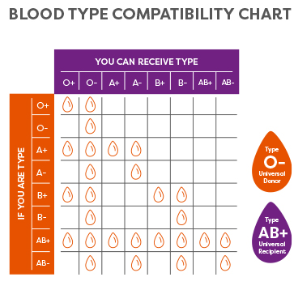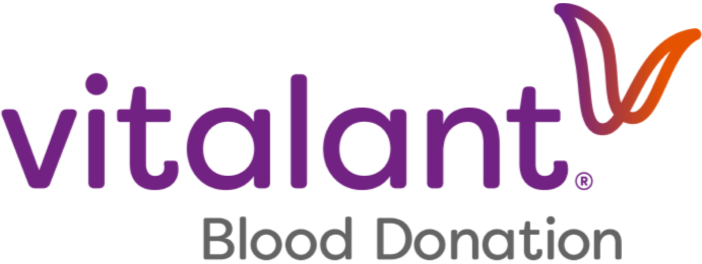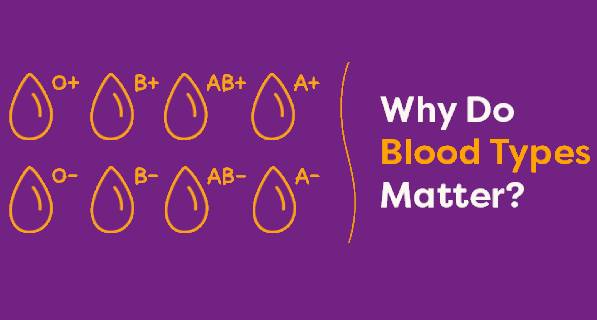Blood is the fluid in your body that transport oxygen and nutrients to your cells. It also carries away carbon dioxide and other waste products. It makes up approximately 7% of body weight. Blood is pumped through the heart to all parts of your body, at an average speed of 3 to 4 miles per hour, then returns and starts again. The cells contained in blood (red cells, platelets and white blood cells) are suspended in a liquid called plasma.
If blood stops circulating, death will occur within minutes. Since blood is such a vital part of who we are, it’s surprising that only 57% of the population know their blood type. Do you know yours?
What are blood types and why are they important?
A blood type is how blood is classified based on the presence or absence of certain antigens on the surface of red blood cells. The two antigens that determine type are called A and B. When just the A antigen is on the blood cell, that creates blood type A. Same is true for the B antigen and blood type B. When both are present, that is called blood type AB, and when neither are present it’s called blood type O.
There is also a protein called the Rh factor which, if present, is positive (+) and if not, it’s negative (-). Combining the A and B antigen and the Rh factor creates the 8 most common blood types—A+, A-, B+, B-, O+, O-, AB+, AB-. Discover how common or rare each blood type is.
You do not need to know your blood type to donate blood, but one of the many benefits of donating blood is that you will learn your blood type.
Why do I need to know what my blood type is?
Knowing your blood type is vital if you ever need a blood transfusion. Your blood type and Rh factor need to be compatible with the blood you receive. If you were to receive the incorrect blood type, your body might "attack" the new blood, thinking it's a foreign invader, and cause you to become very ill. So, your doctors would need to be certain you receive blood with a compatible blood type.
The chart below outlines which blood types are compatible with the others.

Is there anything special about my blood type?
Common or rare, every blood type is unique and special.
O-
- Only 7% of the U.S. blood donor population has type O- blood.
- Because it is the universal red cell donor, meaning anyone can receive type O- red cells, it is always in demand for emergencies and situations where the patient’s blood type is unknown.
- Type O- patients can only receive type O- blood.
- The ideal donation types for type O- are whole blood or Power Red. Your blood type is constantly needed, so please come in and donate as frequently as possible.
O+
- This is one of the most common and, consequently, most transfused blood types — 40% of the U.S. blood donor population has type O+.
- Type O+ donors can give blood products to all Rh+ types (A+, B+, O+ and AB+) and receive both O types.
- The ideal donation types for O+ donors are whole blood or Power Red.
AB-
- This is the rarest blood type—only 1% of the U.S. blood donor population has type AB- blood.
- Type AB- is considered a universal plasma donor, meaning anyone can receive type AB- plasma.
- A patient with type AB- blood may receive any Rh-negative blood type.
- The ideal donation types for type AB- are platelets or plasma.
AB+
- This blood type is rare—only 4% of the U.S. blood donor population has type AB+ blood.
- Patients with type AB+ blood are universal recipients, meaning they can receive a red cell transfusion from any blood type.
- Type AB+ red cells may only be transfused to type AB+ patients.
- It is considered a universal plasma donor type, meaning anyone with any blood type can receive type AB+ plasma.
- The ideal donation types or type AB+ are platelets or plasma.
A-
- Only 6% of the U.S. blood donor population has type A- blood.
- Type A- blood can be transfused to all A and AB types.
- A patient with type A- blood may receive a transfusion from types A- and O-.
- The ideal donation types for type A- are whole blood or Power Red.
A+
- This blood type is fairly common—32% of the U.S. blood donor population has type A+ blood.
- Type A+ blood can be transfused to types A+ and AB+ patients.
- A patient with type A+ blood can receive transfusion from types A+, A-, O+, and O-.
- The ideal donation type for type A+ is platelets.
B-
- This is one of the rarest blood types—only 2% of the U.S. blood donor population has type B- blood.
- Type B- blood can be transfused to all B and AB types.
- A patient with type B- blood may receive a transfusion from O- and B- donors.
- The ideal donation types for type B- are whole blood or Power Red.
B+
- Only 11% of the U.S. blood donor population has type B+ blood
- Type B+ can be transfused to patients with B+ and AB+.
- A type B+ patient may receive blood from all B and O blood types.
- The ideal donation type for type B+ is platelets.
No matter your blood type, your blood donation will be appreciated by a patient who needs it. Please consider making a blood donation appointment today. You never know whose life you will impact.
Published by: Brad D. — Vitalant Contributor

